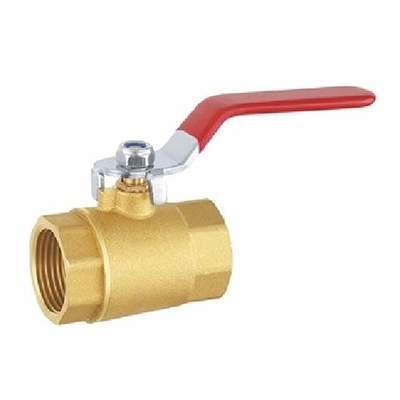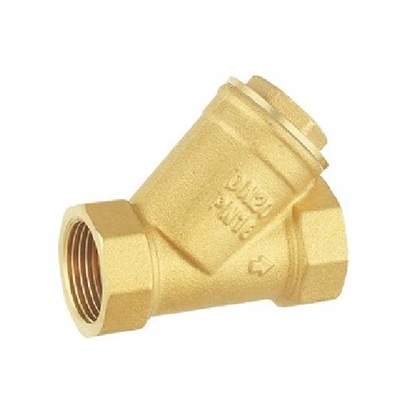Introduction

When it comes to plumbing systems, the choice of materials can significantly impact durability, efficiency, and performance. Among various options available, copper valves stand out as a popular choice for many homeowners and professionals. This blog will explore the top reasons to choose copper valves for plumbing applications, delving into their unique properties, advantages, and potential drawbacks. By the end, you’ll have a comprehensive understanding of why copper valve are an excellent investment for your plumbing needs.
The Unique Properties of Copper
Copper is a metal known for its exceptional conductivity, malleability, and resistance to corrosion. These properties make it ideal for a variety of plumbing applications. Below are some of the distinctive features of copper that contribute to its popularity:
- Corrosion Resistance: Copper naturally forms a protective patina when exposed to moisture, which helps to prevent corrosion and extends the lifespan of plumbing systems.
- Thermal Conductivity: Copper has excellent thermal conductivity, allowing it to handle temperature fluctuations effectively.
- Malleability: Copper can be easily shaped and formed into various types of valves, making it versatile for different plumbing configurations.
Advantages of Copper Valves
Durability and Longevity
Copper valves are known for their durability. They can withstand extreme temperatures and pressures, making them suitable for both residential and industrial applications. The lifespan of copper valve often exceeds that of valves made from other materials, making them a wise investment.
Resistance to Bacteria
One of the lesser-known benefits of copper is its natural antimicrobial properties. Studies have shown that copper can effectively kill bacteria and prevent the growth of harmful microorganisms, making copper valve a safer choice for drinking water systems.
Ease of Installation
Copper valves are relatively easy to install. Their lightweight nature and the availability of various sizes and types make them user-friendly for plumbers. Additionally, the ability to solder copper fittings allows for a secure and leak-free connection.
Eco-Friendly Option
Copper is a sustainable material that can be recycled without losing its properties. Choosing copper valve not only benefits your plumbing system but also contributes to environmental sustainability. When the time comes for replacement, copper can be repurposed, reducing waste.
Aesthetic Appeal
Copper valves have a distinct, attractive appearance that can enhance the overall look of plumbing fixtures. Their warm color adds a touch of elegance to any installation, making them a favored choice for visible plumbing applications.
Cost-Effectiveness
While the initial cost of copper valves may be higher than some alternatives, their durability and low maintenance requirements often result in lower long-term costs. Investing in copper valve can save homeowners money on repairs and replacements over time.
Compatibility with Various Plumbing Systems
Copper valves are compatible with a wide range of plumbing systems, including hot and cold water lines. This versatility makes them an ideal choice for both new installations and retrofitting existing systems.
Common Applications of Copper Valves
Copper valve are used in various plumbing applications, including:
- Residential Plumbing: For water supply lines, hot water heaters, and irrigation systems.
- Commercial Plumbing: In restaurants, hotels, and large buildings where durability and efficiency are essential.
- Industrial Applications: For high-pressure systems in factories and processing plants.
| Application | Advantages of Copper Valves | Typical Use Cases |
|---|---|---|
| Residential Plumbing | Durable, antimicrobial, eco-friendly | Water supply lines, heating systems |
| Commercial Plumbing | Long-lasting, easy to install | Restaurants, hotels, office buildings |
| Industrial | High pressure resistance, recyclable | Factories, processing plants |
Maintenance Tips for Copper Valves
To ensure the longevity of your copper valve, regular maintenance is crucial. Here are some tips:
- Inspect Regularly: Check for leaks or signs of corrosion, especially in high-moisture areas.
- Clean Properly: Use gentle cleaning agents to avoid damaging the copper surface. Avoid harsh chemicals that can cause tarnishing.
- Monitor Temperature: Ensure that the water temperature does not exceed the recommended limits for copper plumbing.
- Professional Check-ups: Schedule periodic inspections with a plumbing professional to identify potential issues before they become significant problems.
Potential Drawbacks of Copper Valves

While copper valves have numerous benefits, it is essential to consider some potential drawbacks:
- Cost: The initial purchase price of copper valve can be higher than plastic or PVC options.
- Conductivity: Copper can conduct heat, which might be a concern in certain installations where heat loss is an issue.
- Corrosion in Unusual Conditions: Although generally resistant to corrosion, copper can corrode in extremely acidic or alkaline environments.
Conclusion
In conclusion, copper valves offer a range of advantages that make them an ideal choice for plumbing applications. Their durability, resistance to bacteria, ease of installation, and eco-friendly nature position them as a leading option for both residential and commercial plumbing systems. While there are some drawbacks to consider, the long-term benefits often outweigh the initial costs.
When selecting plumbing materials, it’s essential to weigh your options carefully. If you’re looking for a reliable, durable, and aesthetically pleasing solution, copper valve are certainly worth considering.
FAQ
Are copper valves suitable for drinking water?
Yes, copper valves are safe for drinking water systems due to their antimicrobial properties.
How long do copper valve last?
Copper valve can last for several decades, often outliving valves made from other materials.
Can I use copper valves with plastic piping?
Yes, copper valves can be adapted for use with plastic piping using appropriate fittings and connectors.
What maintenance do copper valve require?
Regular inspections and gentle cleaning are recommended to maintain the integrity and appearance of copper valve.
Are there any health concerns associated with copper plumbing?
While copper is generally safe, excessive exposure to copper can cause health issues. It’s important to monitor copper levels in drinking water.
